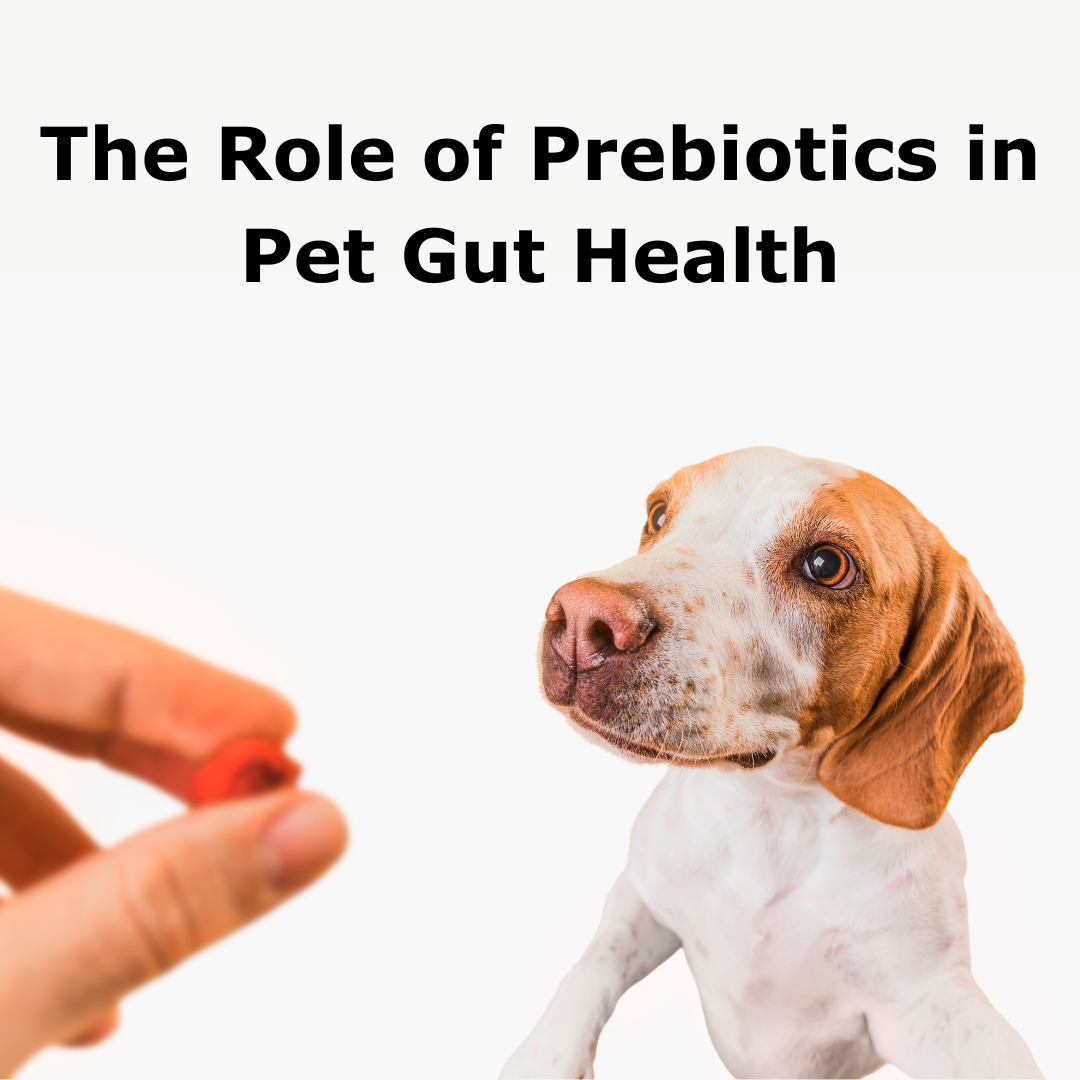
The Role of Prebiotics in Pet Gut Health: What You Need To Know
Share
Caring for your pet's overall health involves paying attention to their digestive system. Much like in humans, a healthy digestive system in pets is crucial for their well-being. Recently, interest has grown in the role of prebiotics in promoting optimal gut health for pets. In this comprehensive guide, we'll dive into what prebiotics are, explore their benefits beyond digestive health, discuss their role in managing specific pet health conditions, provide guidance on dosage and safety, and examine their presence in commercial pet foods.
Understanding Prebiotics:
Prebiotics, often regarded as the unsung heroes of nutrition, are non-digestible fibers that play a pivotal role in nurturing the health of your pet's digestive system. Unlike probiotics, which are live beneficial bacteria, prebiotics act as nourishment for the existing beneficial bacteria in the digestive tract. Think of them as the fertilizer that cultivates a thriving garden of good bacteria.

The Benefits of Prebiotics for Pets:
Improved Digestive Health: Prebiotics help maintain a balanced microbial community in the gut, preventing the overgrowth of harmful bacteria and promoting better digestion and nutrient absorption.
Enhanced Immune Function: A significant part of the immune system is in the gut. By supporting a healthy gut microbiome, prebiotics contribute to a robust immune system, helping your pet fend off infections and diseases.
Regulation of Bowel Movements: Prebiotics assist in regulating bowel movements, reducing the risk of constipation or diarrhea, especially in pets with sensitive stomachs.
Benefits Beyond Digestive Health:
Emerging research indicates that prebiotics offer benefits beyond digestive health, suggesting links between a healthy gut microbiome and improved cognitive function, better weight management, and reduced inflammation in pets.
Cognitive Function: Research shows a connection between a balanced gut microbiome and improved cognitive function in pets. The positive influence of prebiotics on the gut may extend to enhanced mental well-being and cognitive abilities.
Weight Management: A healthy gut environment, fostered by prebiotics, may contribute to better weight management in pets. Studies suggest that a balanced gut microbiome can influence metabolism and contribute to maintaining a healthy weight.
Inflammation Reduction: Prebiotics might play a role in reducing inflammation in pets. A well-maintained gut microbiome has been associated with lower levels of inflammation, which can have positive effects on various aspects of your pet's health.
Prebiotics for Specific Pet Health Conditions:
In addition to general health benefits, prebiotics can be particularly beneficial for pets with specific health conditions, such as diabetes or obesity.
Diabetes: Prebiotics may contribute to managing diabetes in pets by promoting a healthier gut environment. A balanced gut microbiome can influence glucose metabolism and insulin sensitivity.
Obesity: For pets struggling with obesity, incorporating prebiotics into their diet may aid in weight management. The positive effects on metabolism and nutrient absorption can be especially beneficial for overweight pets.
Dosage and Safety: While introducing prebiotics into your pet's diet is beneficial, it's crucial to exercise moderation and prioritize safety.
Appropriate Dosage: Consider factors such as your pet's size, breed, and overall health when determining the appropriate dosage of prebiotics. Consult your veterinarian for personalized guidance.
Veterinarian Consultation: Always consult with your veterinarian before making significant dietary changes. They can provide insights into your pet's specific needs and recommend suitable prebiotic sources or supplements.
Prebiotics in Commercial Pet Foods: Recognizing the growing importance of prebiotics, some commercial pet foods now include them in their formulations.
Check Product Labels: Look for pet foods that explicitly mention the inclusion of prebiotics. Ingredients such as chicory root, inulin, and fructooligosaccharides (FOS) indicate prebiotic content.
Understand Specific Prebiotics:
Familiarize yourself with the specific prebiotics used in the pet food. Different prebiotics may offer slightly varied benefits, so understanding their specifics can help you choose the right option for your pet.
Prioritizing your pet's digestive health is a holistic approach to their overall well-being. By incorporating prebiotics into their diet, you not only support a healthy digestive system but also potentially enhance cognitive function, aid in weight management, and contribute to reducing inflammation. Always consult with your veterinarian to ensure that your pet's diet aligns with their unique health needs and conditions. Unlock the full potential of prebiotics for your pet's health and well-being.
How MuttGut & KittyGut can help:
MuttGut and KittyGut are meticulously crafted supplements, enriched with a blend of premium prebiotics tailored to meet the specific needs of dogs and cats. These supplements are formulated to provide a convenient and effective way to introduce prebiotics into your pet's diet, ensuring they receive the nutritional support required for a flourishing gut microbiome. Check out more about each product below!